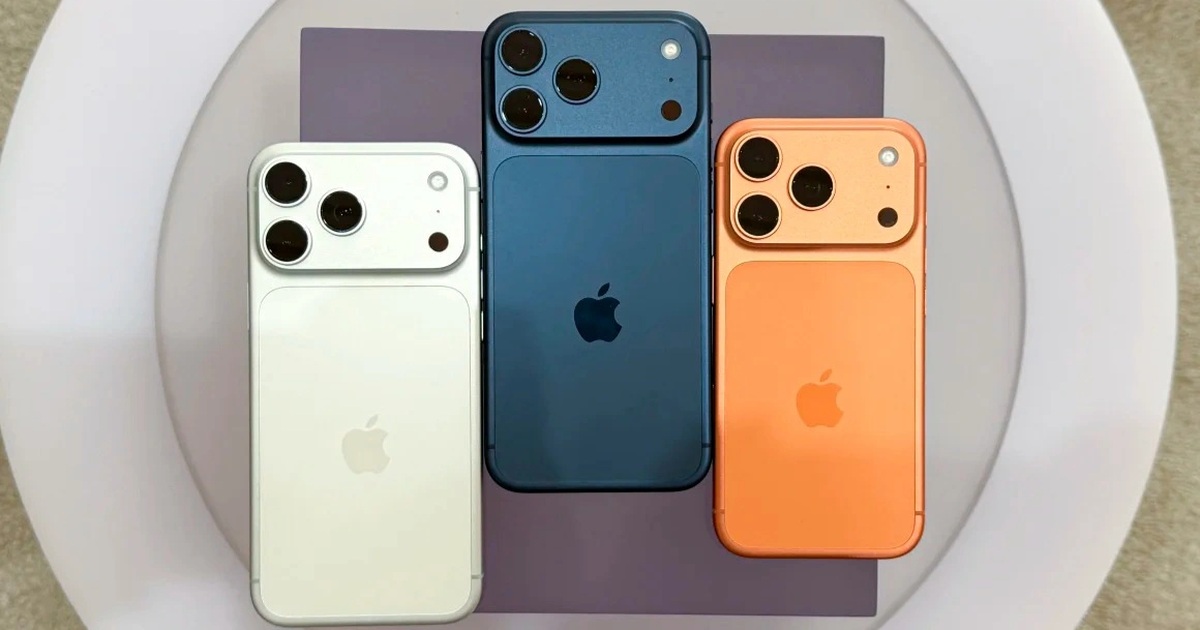Trong đó, phần lớn người dùng đều lựa chọn iPhone 17 Pro Max phiên bản 256GB hoặc 512GB bộ nhớ lưu trữ. Xu hướng này gần như tương đồng với các năm trước.
Doanh số của iPhone 17 Pro Max ghi nhận mức tăng trưởng vượt trội so với thế hệ tiền nhiệm (Ảnh: Gizmodo).
Đây là mức dung lượng lưu trữ phù hợp với phần đông người dùng phổ thông. Phiên bản 1TB và 2TB có giá bán cao hơn đáng kể trong khi trải nghiệm sử dụng gần như không khác biệt.
iPhone 17 Pro Max có giá bán niêm yết 38 triệu đồng cho phiên bản 256GB bộ nhớ. Trong khi đó, phiên bản 2TB bộ nhớ có mức giá lên tới 64 triệu đồng. Có thể thấy, mức chênh lệch giữa hai phiên bản bộ nhớ lên tới 26 triệu đồng, đủ để mua một chiếc iPhone 17.
Giá bán đắt đỏ là rào cản lớn khiến cho người dùng phổ thông khó có thể tiếp cận với các phiên bản lưu trữ dung lượng cao như 1TB hoặc 2TB. Điều đó cũng khiến doanh số của những phiên bản này khá khiêm tốn.
“Phiên bản dung lượng 2TB chỉ chiếm khoảng 1% trong tổng số đơn hàng iPhone 17 Pro Max. Điều này phản ánh đúng về tệp khách hàng chuyên biệt, chủ yếu là người làm sáng tạo nội dung, quay phim hoặc cần dung lượng lưu trữ lớn trên điện thoại”, bà Văn Thị Ngọc Yến, Giám đốc ngành hàng Apple tại Di Động Việt, chia sẻ.
Phiên bản 2TB không được nhiều người dùng lựa chọn do mức giá cao (Ảnh: CN).
Trước đây, iPhone 17 Pro Max đã liên tục ở trong tình trạng “cháy hàng” vào giai đoạn đầu mở bán. Thời điểm đó, chỉ duy nhất phiên bản bộ nhớ 2TB còn sẵn máy, nhưng cũng không được nhiều người lựa chọn.
Đến nay, nguồn cung thiết bị đã dần trở nên ổn định và không còn tình trạng khan hiếm như trước. Thậm chí, một số đại lý đã bắt đầu điều chỉnh giảm giá iPhone 17 Pro Max nhằm gia tăng tính cạnh tranh và thúc đẩy doanh số bán hàng.
Động thái giảm giá này do các đại lý tự triển khai. Do đó, giá iPhone 17 Pro Max tại các hệ thống sẽ có sự chênh lệch tùy theo chương trình ưu đãi.
“Nguồn hàng iPhone 17 Pro Max đã ổn định và đủ để đáp ứng nhu cầu mua ngay của người dùng. Sản phẩm này hiện chiếm hơn 55% tổng doanh số iPhone bán ra tại hệ thống”, đại diện Minh Tuấn Mobile cho biết.
Source link: https://dantri.com.vn/cong-nghe/mau-iphone-17-pro-max-ken-khach-nhat-tai-viet-nam-20251123223238026.htm



